#project manager certification
Text
Project Management Certifications: Your Guide to Gaining Essential PMP Certifications
Project Management Certifications
Do you want to take your career in project management to the next level? Earning certifications is one of the best ways to build your résumé, gain recognition from employers and clients, and stand out from other professionals competing for the same positions. With so many options available it can be overwhelming—where do you start? Let's make sense of it all with our guide on how to get essential project management certifications!
Certifications are an important way to prove your skills and knowledge in project management.
Certifications are an important way to prove your skills and knowledge in project management. They can show that you have the experience and training to handle any project thrown your way. Certifications can also help you advance your career, as they demonstrate your commitment to learning and improving your skills.
There are a variety of different certifications available in project management, each with its own benefits and requirements. The most common certifications are those offered by the Project Management Institute (PMI), such as the PMP certification. Other popular options include the Certified Associate in Project Management (CAPM) certification and the Certified ScrumMaster (CSM) certification.
Each of these certifications has different requirements, but all of them require you to pass an exam demonstrating your knowledge and skills in project management. The PMP certification, for example, requires you to have at least five years of experience in project management, while the CAPM certification only requires one year of experience.
The best way to decide which certification is right for you is to research the different options and determine which one will best help you meet your goals. Then, study for the exam and pass it! Earning a certification is a great way to improve your skills and demonstrate your dedication to your career.
There are a variety of different types of project management certifications available, and each has its own benefits
There are a variety of different types of project management certifications available, and each has its own benefits. The most common type of certification is the Project Management Professional (PMP) certification from the Project Management Institute (PMI). This certification is geared towards experienced project managers, and it requires that you have at least three years of experience in project management and 35 hours of project management education. It also includes a rigorous exam that covers topics such as initiating, planning, executing, monitoring and controlling, and closing projects.
Another option is clinical project management certification. This certification is offered by the Clinical Research Professional Society (CCRPS) and it is designed for professionals who work in the biopharmaceutical industry. It is a shorter certification that can be obtained in just a few weeks, and it includes a variety of different modules that cover topics such as clinical research process, regulatory requirements, study design, and more.
Both of these certifications are valuable and can help you boost your career. The PMP certification is more geared towards experienced project managers, while the CCRPS clinical project management certification is designed for professionals who want to work in the biopharmaceutical industry.
The most common types of project management certifications are: PMP, PRINCE2, CAPM, and Clinical Project Management Certification.
Project management certifications are important to have in order to be successful in the project management field. The most common types of project management certifications are PMP, PRINCE2, CAPM, and Clinical Project Management Certification. Each certification has its own requirements and benefits.
The Project Management Professional (PMP) certification is one of the most popular project management certifications. It is offered by the Project Management Institute (PMI) and is designed for project managers who have experience working on projects. In order to qualify for the PMP certification, you must have a four-year degree, three years of project management experience, and 35 hours of project management education. The PMP certification is valid for three years.
The PRINCE2 certification is offered by the United Kingdom Cabinet Office and is designed for project managers who work in the public sector. In order to qualify for the PRINCE2 certification, you must have a two-year degree or equivalent work experience. The PRINCE2 certification is valid for three years.
The CAPM certification is offered by the Project Management Institute (PMI) and is designed for project assistants, team members, and coordinators who have limited experience working on projects. In order to qualify for the CAPM certification, you must have a high school diploma or equivalent, 1,500 hours of experience working on projects, and 35 hours of project management education. The CAPM certification is valid for five years.
The Clinical Project Management Certification (CPCM) is offered by the CCRPS and is designed for clinical research professionals or project managers who want to become certified in clinical project management. The clinical project management certification has no prerequisites but it is recommended that you have a four-year degree in life sciences or a related field and completion of the online course. The clinical research project management certification is valid for three years.
Clinical project management certification roles, training, salary, job outlook
Clinical project management (CPM) is a process that helps improve the quality and efficiency of health care. The goal of CPM is to ensure that projects, from start to finish, are completed successfully and meet the needs of all stakeholders.
There are several different roles within CPM, each with its own set of responsibilities and skills. The most common roles are:
1. Project manager - The project manager is responsible for ensuring that the project meets its goals and deadlines. They create and update the project plan, manage resources and budgets, and ensure that all stakeholders are kept up to date on the project's progress.
2. Quality assurance manager - The quality assurance manager is responsible for ensuring that the project meets quality standards. They work with the team to develop quality control plans and procedures, and track and report on quality metrics.
3. Business analyst - The business analyst is responsible for understanding the needs of the stakeholders and translating them into requirements for the project team. They work with the team to make sure that all deliverables meet customer expectations.
4. Technical writer - The technical writer is responsible for creating and maintaining all documentation related to the project. This includes requirement specifications, user manuals, test scripts, etc.
Training for CPM roles can vary depending on the role itself. But in general, it will cover topics such as process improvement, change management, risk management, communication skills, and stakeholder management.
Certification is also available for CPM professionals. The most common certification is PMP (Project Management Professional). It covers all aspects of project management, from initiating to closing a project. Other certifications include PgMP (Program Management Professional), PfMP (Portfolio Management Professional), and CAPM (Certified Associate in Project Management).
The salary for CPM professionals varies depending on their role, experience, and certifications. But generally speaking, it ranges from $50,000 to $200,000 per year.
The job growth outlook for CPM professionals is positive. As health care becomes more complex and organizations move towards value-based care models, there will be an increased demand for CPM professionals who can help improve the quality and efficiency of health care delivery.
Become a clinical project manager with advanced clinical research project management certification with our course.
The Clinical Research Project Manager (CRPM) certification offered by CCRPS is a globally-recognized credential that demonstrates advanced clinical research project management skills. Earning this certification requires passing a course that assesses your ability to manage all aspects of clinical research projects, from planning and initiation through closure.
To prepare your resume to be a clinical project manager, you must first meet PMI's requirements for experience and education in project management.
Clinical trial project management certification can help you advance your career in clinical research and demonstrate your mastery of the skills necessary to manage complex clinical research projects. It is also a valuable credential for those seeking to work in the pharmaceutical or medical device industries.
In today's job market, it's more important than ever to have certification to back up your project management skills. With so many different types of certifications available, it can be difficult to know which one is right for you. In this blog post, we've outlined some of the most common types of project management certifications and their benefits. We hope that this has helped you narrow down your choices and decide which certification is right for you. If you're interested in becoming a clinical project manager, our course offers an advanced clinical research project management certification that can take your career to the next level. Enroll today and get started on advancing your career in project management!
#project manager in clinical trials#project management for clinical research professionals#clinical project manager certification#project manager certification#project manager certificationms#project manager certifications
0 notes
Text
PMP CERTIFICATION : BECOME A PROJECT MANAGEMENT PROFESSIONAL | MTSSEDUCATION.COM
Stay abreast of the changes and adopt best practices in project management with the PMBOKⓇ Guide – Sixth Edition. Get PMP-certified in your first attempt. With our PMP® course align yourself with the latest PMP Examination Content Outline 2021. Learn new trends, emerging practices, tailoring considerations, and core competencies important for a project management professional.
35 contact hours/PDUs
Access to Digital materials from PMI
4 simulation test papers (180 questions each)
Experiential learning through case studies
100% Money back guarantee
Online Bootcamp -This PMP® certification provides PMI Digital Material and live virtual classroom training
To opt for the PMP Certification, the following prerequisites are needed:
A secondary degree(i.e. high school diploma, associate’s degree, or global equivalent), 35 hours of project management education, and 7500 hours of experience in leading and directing projects
OR
A four-year degree, 4500 hours of experience in leading projects, and 35 hours of project management education
Project management
Leadership Styles
Project integration management
Project scope management
Project schedule management
Gantt charts and network diagrams
Project cost and quality management
Resource management
Project risk management
Stakeholder management

#pmp certification#project management professional#pmp course#pmp training#project manager certification#pmp certification training#pmp certification online#pmp certification course online#pmp training online#online pmp certification#it certification
1 note
·
View note
Text
emily wilson out here translating the iliad and i am once again wishing i knew how to read and translate ancient greek
#listen where there’s a will there’s a way but i just finished my degree audit and looks like i will only be able to manage a classics minor#with latin emphasis (unless i abandon latin for greek which i’m not going to do even though it pains me)#but i really want to make my own iliad someday….#at this rate i’ll only ever end up making a queer prose adaptation and be criticized for projecting modern notions of sexuality onto a#completely different set of values and social understandings of homosexuality….#(which. if anything there should be more gay people in the song of achilles. don’t be mean to me i promise i understand ancients)#anyway i might just have to make a book of poetry or a novel adaptation or whatever whatever but what if i want to learn the script#and painstakingly translate every single word through years and years of dedication. while also being a librarian as my main thing#shdhdhdf i’m never gonna be classics scholar enough to professionally translate. and if i were it would be latin. but i can dream….#anyway i’m no longer failing my french class (have a 70% that should only be going up) but i’m still failing historical linguistics#my latin grade is great i’m acing it but my library science class is a D (which should be fixed in two days though — just needs more data)#so i am giving myself permission to sleep early tonight and go into class well rested for once. i’m not feeling well but that’s a constant#anyways if anyone reads the wilson iliad let me know!! i’m a fake fan of her work and haven’t read her odyssey (something about the iliad….#there’s a brutality and a raw humanity to it that puts the odyssey at a lower priority to me) but im so freaking excited to read her iliad#i have to prioritize schoolwork but soon. i’ll have to ask my latin teacher about it tomorrow though she’s an iliad enjoyer#anyway good news i think i’ll be able to get a history major with certificates in digital studies and classical studies (the two genders….)#and graduate comfortably in four years with honors in the major. this is ignoring how i’m failing my classes. i promise i won’t be forever#anyways the point is: wilson’s iliad — i will read it as soon as possible and i’m very excited#also i checked out a book from the library called the lexicographers dilemma: the evolution of proper english from shakespeare to south park#but i haven’t had the chance to read it and soon it will be due…. college is evil i’m too busy learning things to learn other things!!!!#anyway if i do honors in the major then i’m excited to eventually earn credit from a capstone thesis which i would do on lexicography#throughout history with an emphasis on classification systems and basically peter mark roget#ok anyway. wandering all over the place but the point is. wilson’s iliad. very exciting. can’t wait to find the time#and eventually i will write an iliad adaptation of my own i will. just not a full translation shdhdf that’s an unrealistic goal#especially when again. my capstone project is going to be about taxonomy of ideas. ancient epics are secondary….#anyway i hope everybody is doing well!! i am going to bed soon-ish but other than that i am around so lmk if you need anything#me. my post. mine.#college talk#delete later
5 notes
·
View notes
Text
PMP Online Certification Training Course
Learn about the Project Management Professional PMP Online Certification , a globally recognized credential for project managers. Learn at your preferred time.
#project management#pmpcertification#pmp#pmp exam#pmp training#training#courses#online courses#certification#pmp online
2 notes
·
View notes
Text
PESTLE, TECOP and VUCA
In the fast-paced and unpredictable world of business, staying ahead requires a keen understanding of the forces that shape our environment. As organizations strive to make informed decisions and minimize risks, three essential frameworks come to the forefront—PESTLE, TECOP, and VUCA
Let’s delve into the intricacies of PESTLE’s political, economic, social, technological, legal, and environmental…
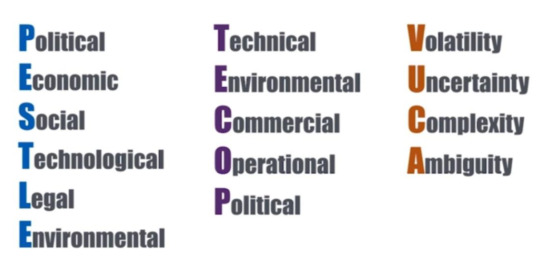
View On WordPress
#Online Training#PMI#PMP#PMP Certification#PMP Exam#Project Management#Project Management Professional#Project Managers#Project Risk Management
5 notes
·
View notes
Text
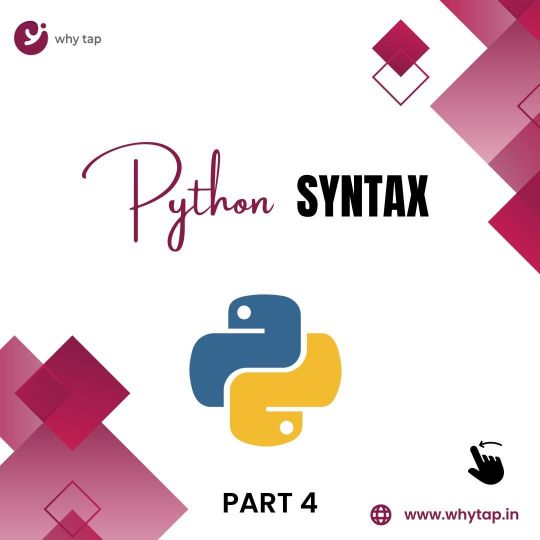
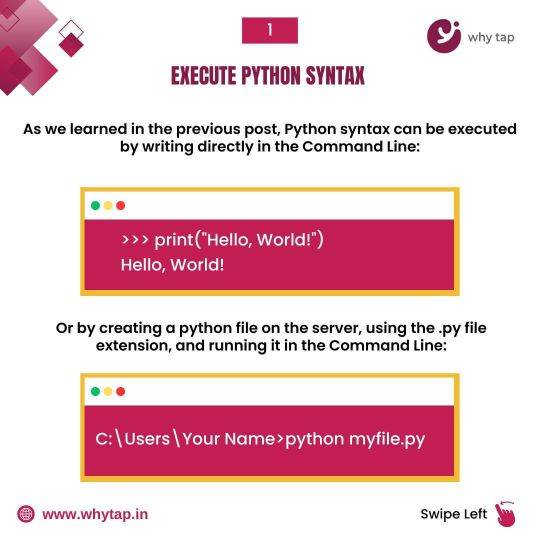
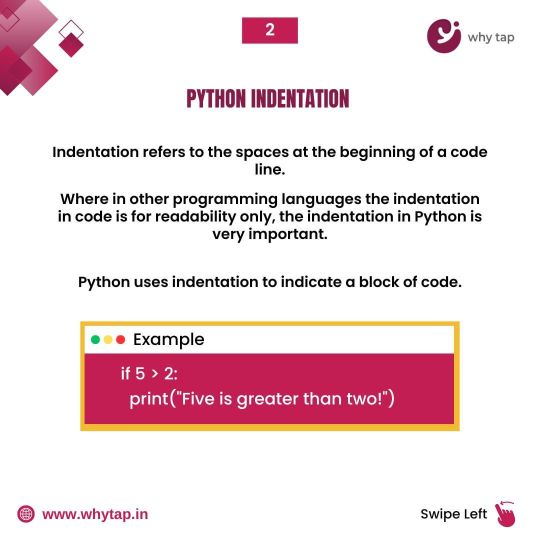
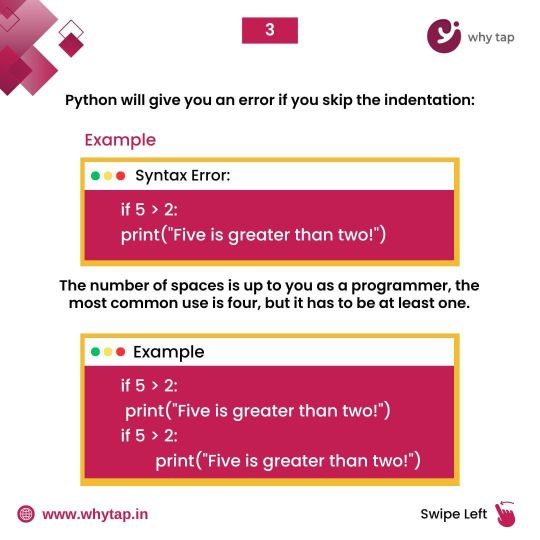



WHY tap
#python#python developers#python programming#python online course#python certification#project management#placement#training#python coding#python tutorial
4 notes
·
View notes
Note
Kibi I missed something. What did you get your masters degree in? I thought you were going for translation.
my degree was specifically "Translation and Localization Management" and my focus was the localization track, which is considered a tech degree because a lot of it was like...learning how to use computer-assisted translation tools, desktop publishing, coding programs to support translation, etc...also general project management
i was still taking courses in Japanese too, but translation was a separate track and i'm not at all fluent, so i couldn't take it even if i wanted to 🥲
to even try getting the translation degree, you had to already be fluent (people who took this track had to take a 5-hour-long test to prove their fluency when they applied to the school), but for the localization track, since it is more tech-focused, you just had to test at "advanced proficiency" (which i did!! shockingly...)
#i also knew people who were in the translation track but switched to localization halfway through because either...#A) the courses were too rigorous#or B) the localization track was considered more well-rounded and desirable to employers...because of the STEM certification 😂#but yeah my job title is 'Localization Project Manager' which apparently is a thing you can be#if you have a language background but aren't fluent/not interested in doing translation or interpretation work
11 notes
·
View notes
Text
You need to check this out
Crack your next interview with Edureka!!!
2 notes
·
View notes
Text
#Project delivery#project managers#project management#pmp certification#pmpcertifiction#pmpcertificationtraining#project manager#project guide
3 notes
·
View notes
Text
As a project manager, you have the responsibility to choose a development
approach to execute your project work. A project development approach is a
method according to which you’re going to create and achieve your project
deliverable whether it’s a product, service, or result. It consists in applying a set of
procedures, techniques, practices, and rules throughout your project life cycle.
#pmp online#pmp exam#pmp training#pmp certification#pmp course#project manager#project management#magedazony#drmaged#camecenter
5 notes
·
View notes
Text
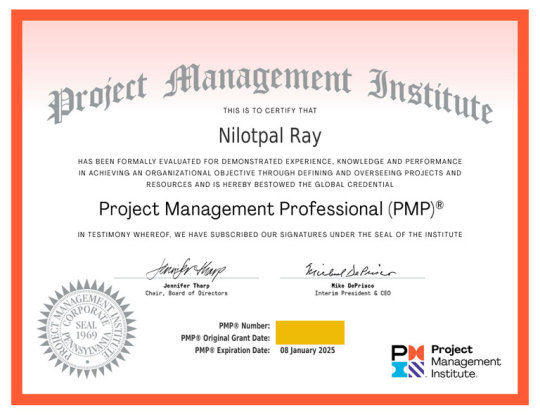
Purchase real PMP certificates Without Exams middle east
Get PMP certificates Without Exams America
Buy real PMP certificates Without Exams Mount Barker
How to get real PMP certificates Without Exam USA Contact us via WhatsApp:+1(778)-561-5240
Contact us via WhatsApp https://wa.me/17785615240
Contact us via Skype id=(Jacob JB)
Contact us via ([email protected])
Use of Your PMP Certification
Once you have the PMP certification. You may refer to yourself as aPMP certification holder as long as you have an active certification status. You have Authority to use the PMP designation in block letters after your name on business cards, personal letterhead, resumes, and
websites and in your email signature.
#Purchase real PMP certificates Without Exams middle east#Get PMP certificates Without Exams America#Buy real PMP certificates Without Exams Mount Barker#How to get real PMP certificates Without Exam USA#I am interested in earning the PMP certification. Should I take a Project Management Certificate Course or a PMP Bootcamp?#How long does it take to get a PMP Certification?#How can I pass the PMP exam with a proficient degree from the first trial?#How do I get a PMP certification?
2 notes
·
View notes
Text
Building a Solid Foundation: PMP Certification and BA Training Essentials
In today's dynamic business environment, professionals are looking for credentials that not only validate their expertise but also open doors to new opportunities. Two such certifications that specialize in the field of project management and business analytics are the Project Management Professional (PMP) certification and the Business Analytics (BA) training. Let's take a look at the importance of these certifications and how they can advance your career.
Importance of PMP Certification
Benefits in career growth
The PMP certification offered by the Project Management Institute (PMI) is globally recognized as the gold standard in project management. Attaining this certification demonstrates your commitment to excellence and enhances your credibility as a project manager. Employers value PMP-certified professionals for their proven ability to lead teams, efficiently manage resources, and deliver successful projects on time and within budget.
recognition in the industry
Earning the PMP credential establishes you as an expert in project management methodologies and best practices. It validates your knowledge of the Project Management Body of Knowledge (PMBOK) and demonstrates your dedication to continuous learning and professional development. With the PMP certification, you gain access to a network of peers and mentors who can provide guidance and support throughout your career.
Understanding Business Analytics (BA)
Role and Responsibilities
Business analytics plays a vital role in bridging the gap between business objectives and IT solutions. BA professionals are responsible for identifying the needs of stakeholders, analyzing business processes, and defining requirements for software development projects. They act as liaisons between business stakeholders and technical teams, ensuring that project deliverables align with organizational goals and objectives.
Essential Skills for BA Professionals
Successful business analysts have a diverse skill set that includes analytical thinking, communication skills, and problem-solving abilities. They must excel in understanding and documenting requirements, facilitating workshops and meetings, and conducting feasibility studies and impact assessments. BA professionals also leverage tools and techniques such as SWOT analysis, stakeholder mapping, and case modeling for project success.
Synergy between PMP Certification and BA Training
The synergy between PMP certification and BA training lies in their complementary roles within the project management ecosystem. While the PMP certification focuses on the overall management of projects, the BA training emphasizes the analysis and documentation of business requirements. Professionals who have both qualifications have a holistic understanding of the project lifecycle and are well equipped to handle complex initiatives with confidence and competence.
Overlapping skills and knowledge areas
Many of the skill and knowledge areas covered in PMP certification, such as stakeholder management, risk assessment, and communications planning, are also integral to the practice of business analysis. By obtaining BA training along with PMP certification, professionals can deepen their expertise in these areas and broaden their career prospects.
Complementary Roles in Project Management
In a project environment, business analysts and project managers often collaborate closely to ensure project success. While project managers focus on the overall execution and delivery of projects, business analysts provide valuable information about the needs and requirements of stakeholders. This collaboration fosters synergy and fosters a culture of innovation and continuous improvement within project teams.
PMP Certification: Key Concepts and Exam Preparation
project management framework
The PMP exam covers the key concepts and principles outlined in the PMBOK guide, which serves as the foundation of project management practices around the world. Candidates must demonstrate proficiency in areas such as project initiation, planning, execution, monitoring and controlling and closing. Familiarity with project management processes, tools, and techniques is essential for success in the exam.
Five process groups and ten knowledge areas
The PMP exam organizes project management knowledge into five process groups: initiating, planning, executing, monitoring and controlling, and closing. Within these process groups, there are ten knowledge areas, including project integration management, scope management, schedule management, cost management, quality management, resource management, communication management, risk management, procurement management, and stakeholder management. Candidates must understand how these knowledge areas interact and apply them effectively in various project scenarios.
Tips for exam preparation
To prepare for the PMP exam, candidates should invest in comprehensive study materials, such as textbooks, online courses, and practice exams. Making and following a study schedule can help candidates stay on track and cover all the exam topics thoroughly. Additionally, participating in study groups or forums allows candidates to exchange ideas, clarify concepts, and gain insight from peers. Practice exams are invaluable for assessing preparation and identifying areas for further study.
Business Analysis Training: Courses and Skill Development
Key Concepts in BA Training
Business analysis training covers a wide range of topics including requirements elicitation, analysis and validation; Business Process Modeling; data analysis; and evaluation solutions and verification. Participants learn to identify business needs, analyze stakeholder requirements, and develop comprehensive requirements documents that serve as the basis for project planning and execution.
Requirements gathering techniques and tools
BA training introduces participants to various techniques and tools for gathering and documenting requirements. These may include interviews, surveys, workshops, focus groups, observations, prototypes, and use case scenarios. Participants learn how to select the most appropriate technologies based on project objectives, stakeholder priorities, and organizational constraints.
Practical experience in real-world scenarios
One of the major benefits of BA training is the opportunity to apply theoretical concepts in real-world scenarios through case studies, simulations and practical exercises. Participants work on projects that simulate real business environments, allowing them to gain practical experience and develop critical thinking and problem-solving skills. Feedback from instructors and peers helps participants refine their techniques and approach and prepares them for success in the field.
Career Opportunities for Professionals with PMP and BA Credentials
Project Manager Roles
PMP-certified professionals are well-positioned to perform a variety of roles within project management, including project manager, program manager, portfolio manager, and project consultant. These roles include overseeing the planning, execution and delivery of projects across various industries and sectors.
business analyst position
Professionals with BA training are in high demand in industries such as IT, healthcare, finance and manufacturing. They play a key role in software development projects, process improvement initiatives, and organizational change efforts. Business analysts may work within organizations or as consultants for third-party firms.
Project Management Office (PMO) Opportunities
Project management offices (PMOs) are the central hub for project governance, standards, and best practices within organizations. PMP-certified professionals often have opportunities to lead or contribute to PMO initiatives, such as developing project management methodologies, establishing project governance structures, and providing project management support and guidance to project teams.
Salary potential and job market demand
Competitive salaries for certified professionals
Professionals with PMP and BA certifications earn competitive salaries in the job market. According to industry surveys and salary reports, PMP-certified project managers earn higher salaries on average than their non-certified counterparts. Similarly, business analysts with recognized certifications such as Certified Business Analysis Professional (CBAP) or Certified Professional for Requirements Engineering (CPRE) enjoy attractive compensation packages and career advancement opportunities.
Increasing demand in various industries
The demand for project management and business analysis skills is continuously increasing in industries such as IT, healthcare, manufacturing, finance and government. Organizations recognize the value of investing in certified professionals who can make projects successful and deliver solid business results. As the pace of technological innovation accelerates and business landscapes evolve, the need for skilled project managers and business analysts will only increase.
How to choose the right training provider?
Accreditation and Reputation
While selecting a training provider for PMP certification or BA training, it is essential to consider factors like accreditation, reputation and industry recognition. Look for training providers that are accredited by reputable organizations such as PMI, IIBA (International Institute of Business Analysis), or ATP (Authorized Training Providers) that are endorsed by these organizations. Research online reviews, testimonials, and success stories to assess the quality of the training and the satisfaction of previous participants.
Curriculum flexibility and delivery methods
Choose a training provider that offers flexible course options and delivery methods to accommodate your schedule and learning preferences. Whether you prefer in-person classroom instruction, virtual online courses, self-paced e-learning modules, or blended learning formats, be sure the training provider can meet your needs. Evaluate the curriculum, learning objectives, and learning materials to ensure that they align with your career goals and learning objectives.
Alumni Success Stories and Reviews
Seek feedback from alumni and past participants to gain insight into their learning experiences and outcomes. Success stories and reviews from former students can provide valuable information about the effectiveness of the training program, the expertise of the trainers, and the relevance of the course material to real-world applications. Consider reaching out to alumni directly or joining online forums and communities where participants share their experiences and offer advice to aspiring professionals.
conclusion
Ultimately, obtaining PMP certification and BA training can significantly enhance your career prospects and professional growth opportunities. These certifications validate your expertise in project management and business analysis and demonstrate your commitment to excellence and continuous learning. By investing in comprehensive training and obtaining relevant certifications, you can prepare yourself for success in today's competitive job market and contribute to the success of projects and organizations.
0 notes
Text
Business Analysis Cert can be Obtained Now in a Very Convenient Manner!
Business analysis is discipline within the field of management that focuses on identifying the business needs and helps in determining solutions to problems held in business. It involves analyzing various aspects of business; this includes its operations, strategies, system and processes so that the efficiency and productivity can be improved. Business analyst plays a vital role in this sector and in bridging the gap between business organization and technical teams. Business analyst work closely with stakeholder to analyze, elicit and document their requirements for projects. They have strong communication skills to effectively understand their requirements.

Now you can get this certificate easily
Business analysis cert is made for professional to enhance their skills in the fields of business analysis. The certification provides a sequence of frameworks and methods that are recognized globally. This makes them valuable for individuals those who are seeking to make their career in business analysis. For having business analysis certification, you should work on your excellence and professionalism in this field. It validates one’s knowledge and expertise, providing employees and clients with confidence in their abilities to give high quality result. Moreover, the certification helps candidates to meet the educational needs and gain experience and pass an examination. This is how it ensures that the certified professionals can build their career properly in this field.
The role of a business analyst can be very vital for just any business
The CBAP business analyst is a professional who analyzes the business processes, find the flaws if there are any and ensure those flaws are eliminated successfully. One of the best roles of CBAP is to act as a link between stakeholder and facilitating the understanding and communication between the organizations. CBAPs ensure that the requirements regarding the business are accurately captured and translated into work. This involves conducting interviews, analysis sessions and workshops to prioritize requirements effectively. The certification plays a crucial role in the implementation and development of IT solutions that align with business objectives.
#business analysis certification training#business analysis training#business analysis#project management certification
0 notes
Text
What is Business Value
Business Value is creating and delivering benefits that exceed the costs involved.
Definitions
Business value is the combination of tangible and intangible assets, capabilities, and relationships that a company possesses and leverages to create and capture value for its stakeholders.
Through the effective use of portfolio, program, and project management, organizations will possess the ability…

View On WordPress
#Online Training#PMI#PMP#PMP Certification#PMP Exam#Project Management#Project Management Professional
3 notes
·
View notes
Text
#Edvoro#UK School#Online Education UK#coaching and mentoring#uk education#project management certification
1 note
·
View note
Text
15 Shocking Project Management Statistics in Jamaica and the Rest of the World
The project management landscape is undergoing significant changes in Jamaica and the rest of the world, with a heightened focus on productivity, reporting, and information technology. Numerous studies have been conducted to examine the success and failure rates of projects.
Here are 15 shocking statistics that illuminate the evolving performance of project management across various industries…

View On WordPress
#Jamaica IT project management#Jamaica project management failures#Jamaica project management industry#Jamaica project management performance#Jamaica project management roles#Jamaica project management statistics#Project management certifications in Jamaica#Project management challenges in Jamaica#Project management success rates in Jamaica#Project management trends in Jamaica
0 notes